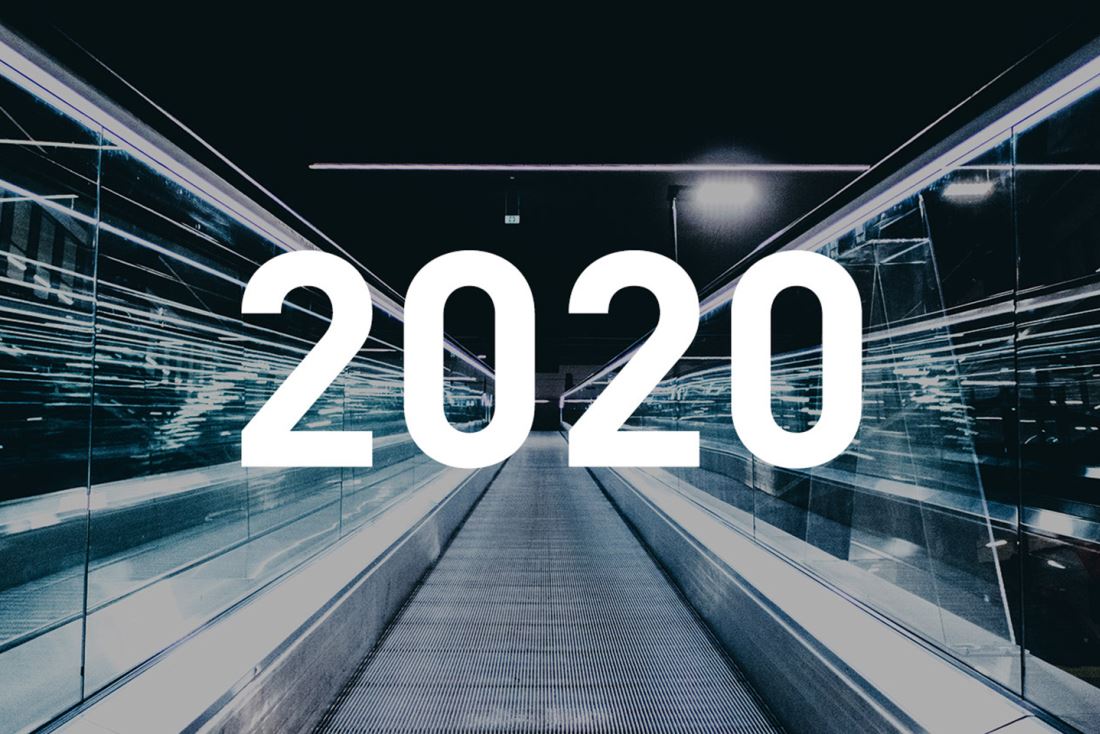Article
Five Trends That Will Influence Brands In 2020 And Beyond

This article was originally published for Forbes Agency Council.
Technology continues to be the major source of change for brands striving to connect with customers and clients. Despite the fact that digital technology continues to connect more and more people online, B2B and B2C brands alike continue to struggle for recognition and market share.
The way consumers view brands continues to be an eclectic mix of psychology, utility and technology that makes certain brands stand out from the crowd. There is an increasing emphasis, however, on leveraging technology to build brand believers. I see five trends in 2020 that lean heavily on the technology side, where the haves and have nots may clear the playing field:
- Customization will change expectations.
- Service delivery will set brands apart.
- Artificial intelligence (AI) and machine learning will impact brand trust.
- Environmental concerns will require a clear strategy.
- Speed will matter again.
1. Customization will change expectations.
In a survey by Infosys, 86% of consumers confirmed that customization "has at least some impact" on influencing their purchasing decisions. Customization is more affordable than ever and is now accessible to a much broader global market. This increases expectations for unique experiences in terms of product delivery.
In 2020, premium brands must look beyond demographics and turn to personalization to keep the interest of sophisticated consumers. Brands that create experiential marketing informed by customer data integration will be best positioned to manage customer expectations. In fact, a brand's ability to adjust to market needs may very well define its growth in 2020 and beyond.
2. Service delivery will set brands apart.
As products commoditize, service will become even more important to differentiate brands. With technological changes transforming product development, the time to market is vastly increased — meaning it's relatively easy for competitors to improve on your design and steal your market share.
To prevent this, delivery needs to be consistent, thoughtful and thorough. Product development must be balanced with production demands, and a laser focus on customer satisfaction is essential. In some organizations, this may mean resetting expectations and conducting staff training to ensure alignment and brand success.
3. Artificial intelligence (AI) and machine learning will impact brand trust.
In Gartner's CIO Survey, 3,000 CIOs working in 89 countries ranked AI technology as the most disruptive element in how companies do business and interact with customers.
Brands like McDonald's have begun to recognize that AI must be considered in their brand strategies. Innovations in AI and machine learning are changing how consumers interact with devices, appliances and wearable tech. These are just a few of the dramatically changing product lines to emerge as a result of voice-automated devices and other convenient product evolutions. Amazon's release of a trove of wearable devices is just one example of how much stock companies are placing in wearable tech.
Some sensitivity is required since these innovations could have negative impacts on consumers who lose their jobs to smart technology. It will be a fine line to walk, but brands should use machine learning to anticipate the needs of their customers without flaunting the technology in a way that irritates their target audiences.
Social-listening tools can help you sift out key information about customers and competitors, fans and influencers. Natural language processing tools can be trained via machine learning to extract semantic meaning from social media posts, allowing you to respond to your target audience more rapidly and reach out to them online before your competitors do.
4. Environmental concerns will require a clear strategy.
With the rising awareness of climate change and its economic impacts, your brand's social footprint can draw or repel socially conscious employees and customers who care about the planet.
Recently, Business Roundtable CEOs challenged the long-held idea that a company's purpose is to increase value for its shareholders, arguing instead that demonstrating a commitment to all stakeholders — employees, suppliers, communities and the environment — is most important. As companies develop sustainability strategies, brands will need to rely on ESG reporting to demonstrate stewardship of resources.
More brands are hiring environmental awareness officers to champion green and sustainable thinking in all aspects of the organization, including how products are produced, packaged and delivered. Your branding must be positive and clear, and the actions of the organization must live up to that image to maintain authenticity.
5. Speed will matter again.
As customers continue to expect instant updates and gratification, speed will become a competitive edge. Brands that aren't able to adopt this advantage will likely lose market share to competitors that can provide the real-time, reactive services that consumers have come to expect.
Your brand will need to respond, anticipate and create faster than ever to succeed. The world is becoming more competitive than ever — if you're not quick and smart, you're dead. However, these new technologies create unparalleled opportunities for those willing to embrace them.
Brands will be challenged to keep up as these trends continue to compound. While there's great opportunity to differentiate around things like service and personalization, it will take a great deal of discipline to keep up with changing technology and the expectations of consumers. It's a brave new world for organizations as they work to understand the changing expectations of their customers while adopting smarter, faster and more responsive technology.
A Few Extra Insights
Hopefully, these trends will help guide your brand in 2020 and beyond. If you need help with your own branding, we'd love to chat. If you want to learn more about branding and the impact of technology, check out these resources:
- Learn how data science can impact branding.
- Discover how the internet-of-things is revolutionizing branding.
- Learn how your brand strategy drives business growth.
- Learn how to thrive in an uncertain economy.

